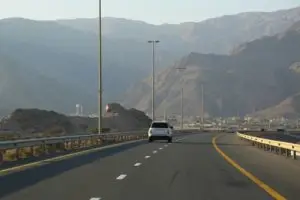
Inasmuch as the Vehicle Code applies only to vehicles on highways and trafficways, understanding the definition of both is paramount to understanding the applicability of the DUI law.
A highway is defined as “the entire width between the boundary lines of every way publicly maintained when an part thereof is open to the use of the public for purposes of vehicular travel. The term includes a roadway open to the use of the public for vehicular travel on grounds of a college or university or public or private school or public or historical park.”
For a free legal consultation, call (610) 680-7842
A trafficway is defined as “[t]he entire width between property lines or other boundary lines of every way or place of which any part is open to the public for purposes of vehicular travel as a matter of right or custom.”
Under the DUI law, appellate opinions have addressed the definition of “trafficway” only. While the definition remains unclear, this much we know:
- A parking garage is a trafficway. Commonwealth v. Zabierowsky, 730 A.2d 987 (1999).
- An alleyway leading to a government building is a trafficway. Commonwealth v. Cozzone, 593 A.2d 860 (1991).
- A condominium parking lot not open to the public is not a trafficway or highway. Comm. v. Owen, 580 A.2d 412 (1990).
- A parking lost used by the public is a trafficway. Commonwealth v. Zabierowsky, 730 A.2d 987 (1999).
- A dirt track through a field this is open to the public and occasionally used by the public for vehicular traffic is a trafficway. Comm. v. Baughman, 516 A.2d 390 (1986).
- A private drive into a trailer park that has only one entrance/exit and was itself a dead end is not a trafficway. Comm. v. McFadden, 547 A.2d 774 (1988).
Remember, it’s the Commonwealth’s burden to establish what is a highway or trafficway.
Call or text (610) 680-7842 or complete a Free Case Evaluation form








